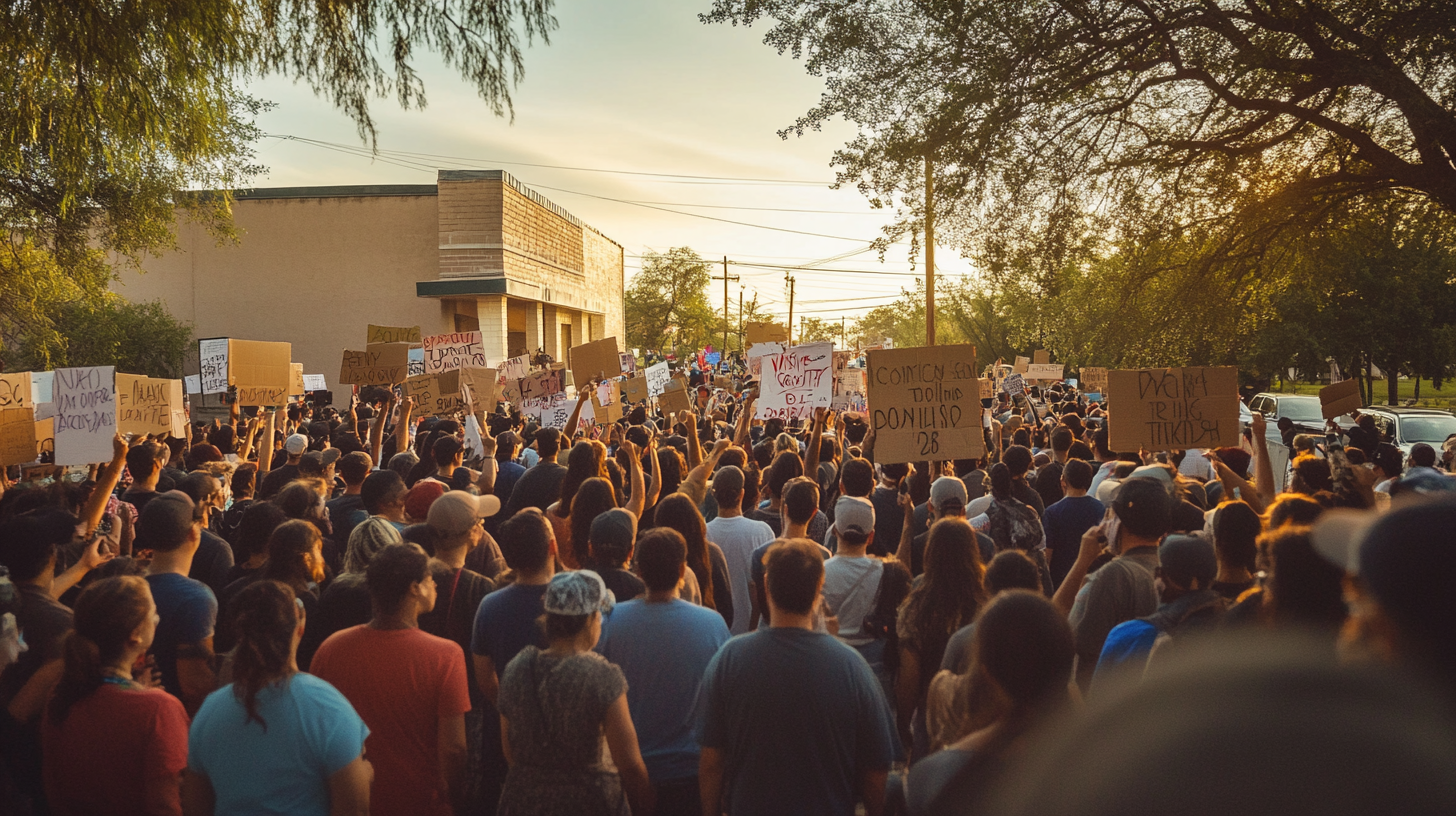Protestors Rally Outside Valley Congressman’s Office in Brownsville Over Immigration Bill
**Brownsville, Texas** – Tensions ran high outside Congressman Vicente Gonzalez’s office in Brownsville as protestors gathered to express their dissatisfaction with his recent support of the controversial Laken Riley Act. The bill, which has passed the House and is awaiting a Senate vote, mandates the deportation of undocumented immigrants charged with minor crimes, including burglary and shoplifting. The protest underscores a growing divide in the Rio Grande Valley (RGV) over immigration policies and their impact on local communities.
An Overview of the Laken Riley Act
The Laken Riley Act, named after a Georgia college student tragically killed in 2024 by an undocumented immigrant, aims to tighten immigration controls by enforcing more stringent deportation measures. Proponents, including Congressman Gonzalez, argue that the bill is necessary to enhance public safety. In a statement, Gonzalez said, “Riley’s death was preventable, and this legislation could have saved her life.”
However, local immigration advocates and community members vehemently oppose the bill, arguing that it fosters fear and perpetuates a “dangerous narrative.” Joaquin Garcia, Director of Organizing for LUPE (La Unión del Pueblo Entero), declared, “By supporting this bill, you have failed to stand with us. Instead, you have chosen to align with a dangerous narrative that threatens the rights and safety of so many people.”
Local Impact: South Texas Communities React
The Rio Grande Valley, a region deeply intertwined with immigration issues due to its proximity to the U.S.-Mexico border, faces unique challenges that this legislation might exacerbate. Valley residents have expressed concerns about the potential for increased deportations to create an atmosphere of fear and mistrust within communities that are already vulnerable.
For Maria Hernandez, a Brownsville local and volunteer with a community outreach program, the implications are clear. “This bill targets our neighbors, friends—people who contribute to our society. It threatens to divide us rather than unite us as a community working towards common goals,” she explained.
The RGV’s demographic makeup, shared experiences, and economic dependencies on cross-border movement mean that changes in federal immigration policies directly resonate at the local level.
Historical Context and Ongoing Issues
Immigration has long been a hot-button issue in the Valley, with residents often grappling with policies impacting their livelihoods and familial ties across borders. Previous protests and rallies have called attention to the humanitarian aspects and economic consequences of immigration restraints.
“My father came here 30 years ago and built a life for our family,” said Alejandro Lopez, a protest participant. “This bill disregards the contributions of immigrants and punishes people for seeking better opportunities.”
Potential Future Implications for the Community
While the Laken Riley Act still awaits a Senate decision, the discussions it has sparked underscore ongoing tensions around immigration reform. Should the legislation pass, local governments and community organizations could face increased demands for support services for affected families and guidance in navigating an evolving legal landscape.
Additionally, civil rights groups in the RGV may ramp up efforts to monitor and provide legal assistance in cases that arise from the bill’s enforcement, further emphasizing the region’s role at the forefront of immigration advocacy.
Balancing Community Perspectives and Policy Goals
The sentiment among Valley residents is mixed, with some supporting stricter immigration measures for safety concerns, while others vocally oppose the potential backlash on immigrant communities. Lawmakers and stakeholders must balance these differing perspectives to formulate policies that protect citizens while honoring the contributions and rights of immigrants.
James Salinas, a political analyst based in McAllen, commented, “The RGV is a microcosm of the national debate on immigration. Effective policies must consider both security and compassion, demanding cooperation from federal and local entities to craft legislation benefiting all.”
Local Resources and Contact Information
Community members seeking more information or assistance regarding immigration rights and the impacts of such policies can reach out to local advocacy organizations like LUPE or the South Texas Civil Rights Project. These groups offer resources and guidance to individuals navigating immigration issues.
For those wishing to express their opinion or concerns about the Laken Riley Act, Congressman Gonzalez’s office remains open for constituent feedback, inviting Valley residents to engage in constructive dialogue.
**As the bill advances through legislative channels, this pivotal moment in the RGV’s ongoing immigration narrative highlights the intersection of policy and human impact, reaffirming the region’s critical role in shaping the national discourse.**







